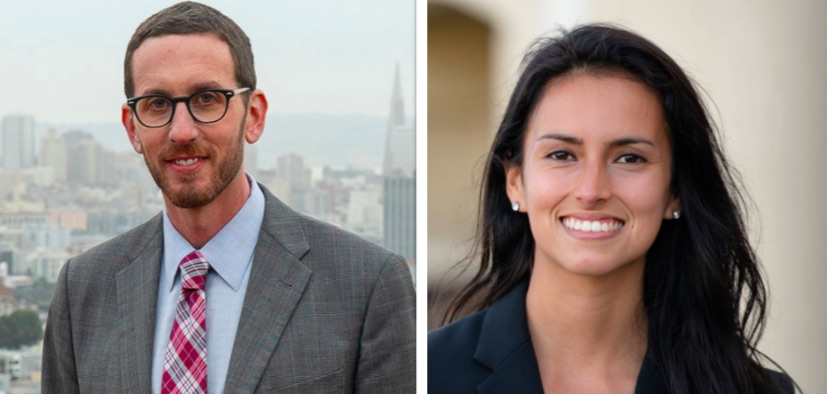For months now, incumbent state Sen. Scott Wiener has not agreed to a single debate with his challenger, Jackie Fielder. That’s a common strategy for an incumbent with a money advantage who doesn’t want to give the challenger any additional media attention.

In this case, though, Fielder has been getting traction – she’s raised, all told, more than $600,000 and has donations from some 3,500 individual donors. She has the backing of the California Teachers Association and the United Educators of San Francisco.
And Wiener has finally accepted one invitation.
The two will meet for a virtual discussion Saturday/3 at 1pm, sponsored by Manny’s. You can watch the livestream here.
The COVID crisis has taken some attention away from the municipal corruption scandals, but they will be back in the news Thursday/1 when the Government Audit and Oversight Committee holds a hearing on the investigations and considers an ordinance to limit the mayor’s power.
The ordinance, by Sups. Matt Haney and Gordon Mar, would bar the mayor for delegating to a department head authority to approve contracts.
That was one of the key problems in the Mohammed Nuru case: Mayor London Breed had given Nuru the right to sign off, with no oversight, on significant public works contracts. The feds have charged Nuru with trading contract approvals for gifts.
Then the committee will hold a full hearing on the “progress and findings” of the city attorney and controller investigations.
The committee will also consider a measure Sup. Dean Preston that would extend rent controls to Midtown Apartments, a complex in the Western Addition where tenants, mostly African American, have faced big rent hikes under nonprofit ownership.
Preston also has a measure at the Land Use and Transportation Committee Monday/28 that would create a Social Housing Program Fund that could be used for public housing, community land trusts, and limited equity co-ops. The money would go to projects in which the city holds and interest in the land (so they can’t ever be sold for profit) and where the average income of tenants is not more than 80 percent of the area median.
That’s significant since the mayor most recently pushed a measure that would have allowed developers to claim as “affordable” units priced for people earning 140 percent of median, with an average price at 120 percent.
San Francisco hasn’t built municipal housing in decades, and there’s never been a special fund for land trusts and co-ops.
This measure doesn’t allocate any money for the program – but that’s where some of the receipts from Prop. 1, the high-end real-estate transfer tax on the November ballot, could go.
The measure is cosponsored by Sups. Hillary Ronen, Mar, Haney, and Shamann Walton.
The same five supes are also proposing a Rent Resolution and Relief Fund that could give money to small landlords whose tenants have been unable to pay rent because of COVID.
The full board will hold a hearing on and consider emergency legislation to prevent commercial landlords from evicting their tenants for nonpayment of rent due the pandemic. The measure, by Sup. Aaron Peskin, requires a two-thirds vote.
The Planning Commission will hear a report from the city economist Thursday/1 on the state of the economic crisis and potential recovery plans. You can read the memo here; nothing in it is very surprising.
Except that there are no real recovery strategies, certainly none that start with the fact that the crisis has made the city’s economic inequality even worse – high-wage jobs and industries (mostly tech) have grown, while service-sector jobs have crashed.
All the commission is talking about is monitoring the situation:
We will also continue to monitor the city’s conditions through data and by connecting to community voices in order to evolve our crisis responses as the landscape changes. The Department will create a roadmap to address these issues outlined above. Staff will provide briefings to the Planning Commission on topics such as: vulnerable populations, housing stability, the future of office, and small business and retail, among others as prioritized by our communities.
No talk at all of ways to make the rich pay to bring the city’s economy out of the dumps.
No surprise here, either; it’s how this administration operates.




